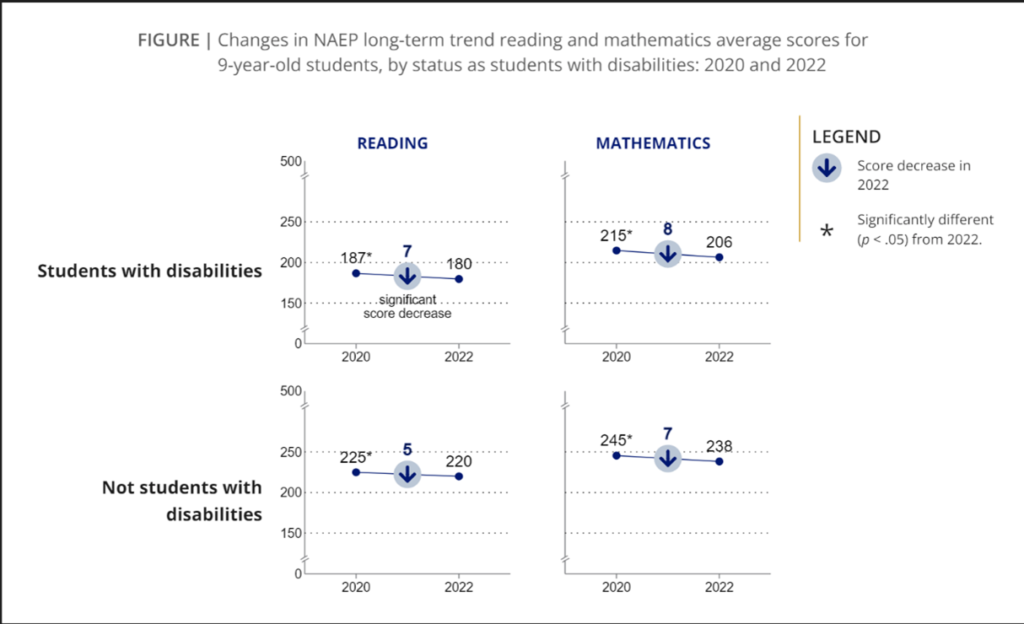By Jordan Lindsey, Executive Director, The Arc of California
Last week’s release of scores on what is known as the nation’s report card – the National Assessment of Educational Progress showed dismal but not unexpected findings, including the first-ever drop in math scores (seven points) for nine-year-old students, along with the steepest drop (five points) in reading scores since the 1980s. Tragically, students with disabilities demonstrated even more regression, dropping seven points in reading and eight points in math. In total, the drop in scores now equals the scores from the early 2000s. In other words, we have lost 20 years of educational progress due to the pandemic.
National Assessment of Educational Progress (NAEP) is a congressionally mandated program that is administered by the National Center for Education Statistics within the US Department of Education. It is an assessment given to 4th, 8th, and 12th graders nationwide. NAEP conducted a special assessment to see how students scores in reading and math changed from 2020 to 2022—the test was given to students, aged 9 (approximately 4th grade). Overall, lower-performing students had more significant drops in scores than students performing at higher levels.
 The report does not address factors or reasons for the drop in scores (which may include the impacts of distance learning, mental health challenges, children who lost a parent due to COVID, financial strains due to a parent losing employment, or many other factors), nor does it address future impacts of lower scores. This article, however, from KQED presents many considerations of the implications.
The report does not address factors or reasons for the drop in scores (which may include the impacts of distance learning, mental health challenges, children who lost a parent due to COVID, financial strains due to a parent losing employment, or many other factors), nor does it address future impacts of lower scores. This article, however, from KQED presents many considerations of the implications.
The Arc of California is committed to improving our education system for students with disabilities and fighting for equity and inclusion in our schools. This report emphasizes the extra support that this generation will need and the advocacy efforts that will be needed to address long-term impacts.

